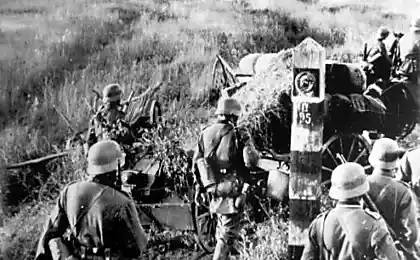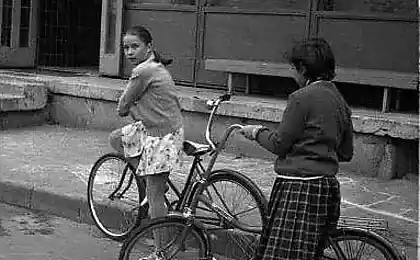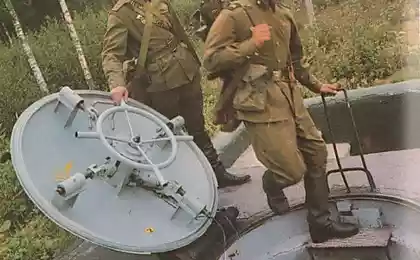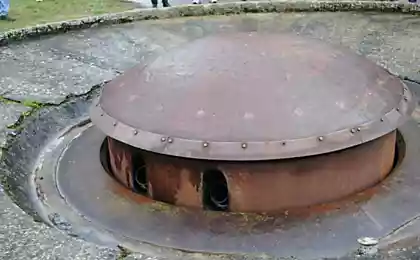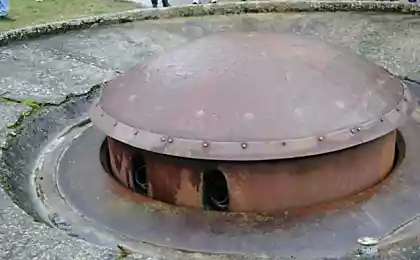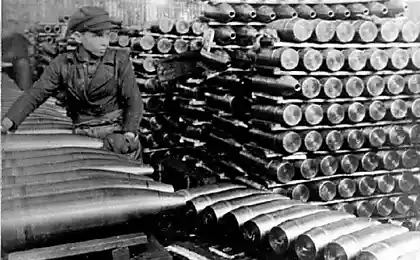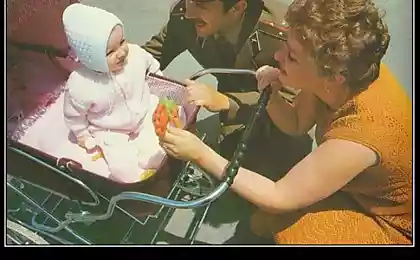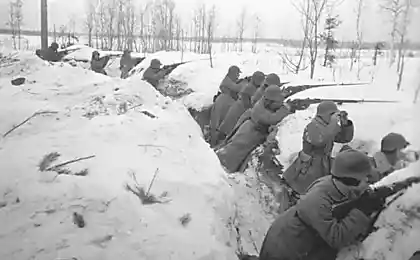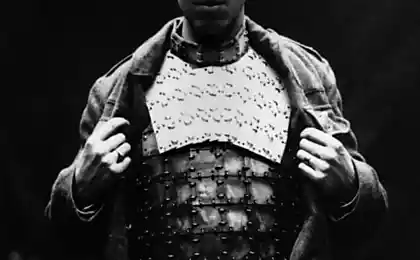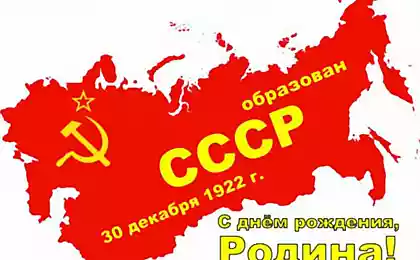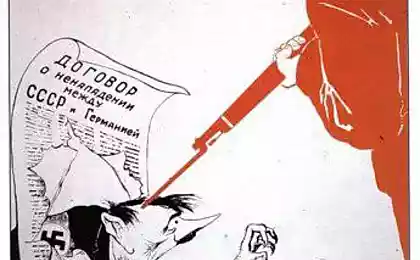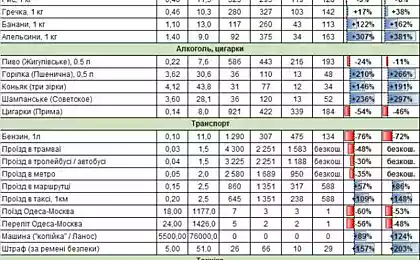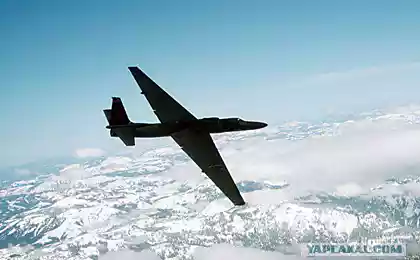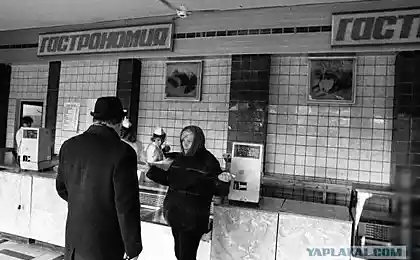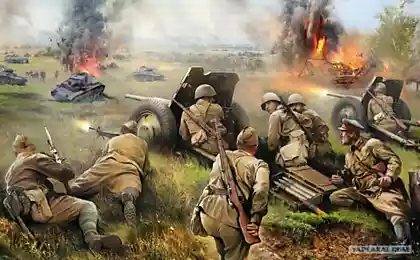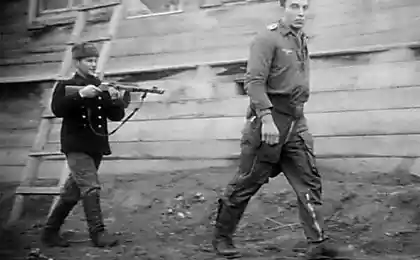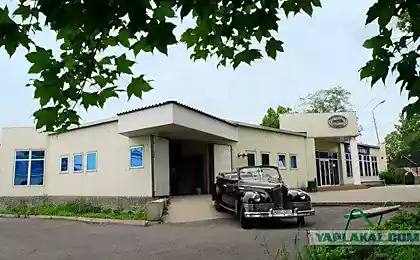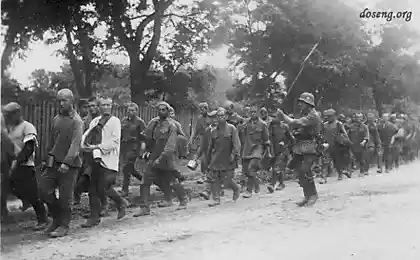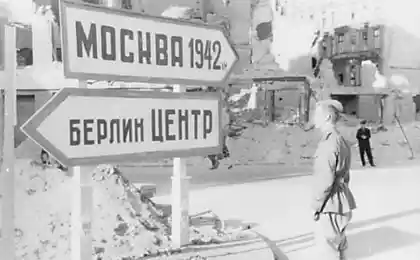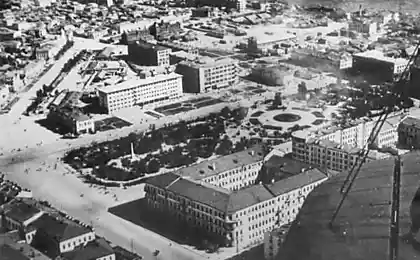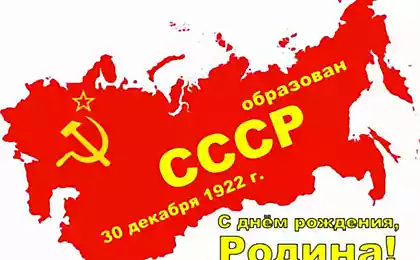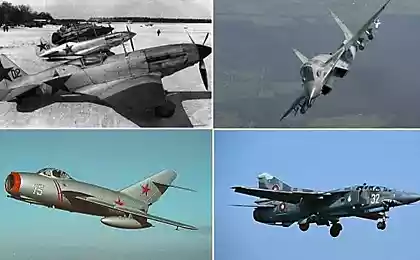914
The soldiers of the Wehrmacht. Voluntary transfer to the Soviet Union
The most famous case of voluntary transition with the aim to fight on the side of the Soviet Union is a story of a German corporal Hans Werner Fritz Shmenkelya
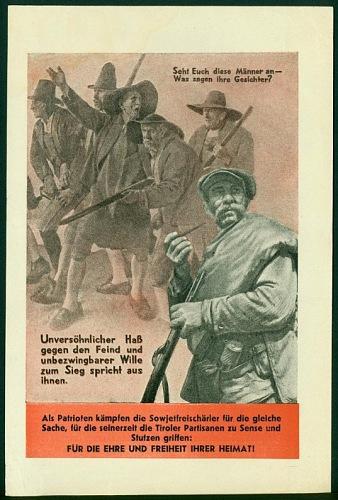
Fritz was born February 14, 1916 in the village near the town of Stettin Varzovo Schetsi now, his father was killed by a communist in 1923 in a clash with the Nazis. In November 1941, F. Shmenkel deserted from the ranks of the German army in the area of White Kalinin (now Tver) region intending to cross the front line with the aim to join the ranks of the Red Army, but fell to the Soviet partisans February 17, 1942, he was accepted into the partisan detachment "Death to fascism," and from that time till March 1943 he was a scout, machine gunner, a member and leader of many combat operations on the territory of Nelidovsky and Belsky areas Kale (now Tver) region and in the Smolensk region. The guerrillas gave him the name "Ivan».
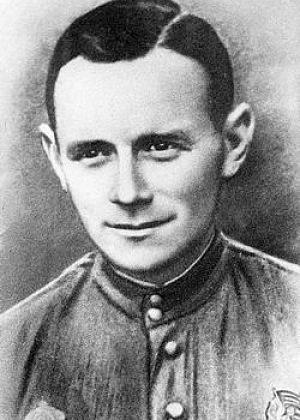
From the testimony of partisan Victor Spirin: - The first time he did not trust, and weapons not allowed. Even wanted to shoot if the current difficult situation. Intercede locals, whom he helped on the farm, is wandering in autumn and winter of the 41st year. At the end of February, we were attacked and shelled the German reconnaissance detachment. Shmenkelya There was only one pair of binoculars, through which he watched the fight. Seeing the Germans hiding behind the tree and driving accurate fire on the house, I asked for the rifle. He was allowed to take - in the hall, they were a bunch, but I told him its not given. He put the German one shot. After that, we began to trust him (although the testimony of another guerrilla him a long time did not trust - "prescribed in a watch, and the shelter put his own man") gave him a rifle and killed the gun "pistol».
May 6, 1942 on the road Dukhovshchina - White squad encountered a German tank column and was forced to retreat from the battle. We were leaving when Shmenkel ran to the assistant commander of the detachment, and Vasilyev said that tanks are barrels of fuel and you need to shoot them. Then we opened fire with incendiary bullets and burned five tanks.
Soon Fritz Ivan has become an indispensable and authoritative fighter in the squad. The guerrillas fought mainly with captured weapons captured from the Germans. However, no one with a machine gun but Fritz-Ivan, did not know how to handle, and he willingly helped the guerrillas to master the technique. Even the commander consulted him during an operation.
From the testimony of partisan Arcadia Glazunov: - Our unit was surrounded by the Germans, and we fought about two weeks. Then everyone went to small groups and made their way out of encirclement. Shmenkel was with us and was gone from the environment with one of our partisans. About a month later our group gathered in the forest. Shmenkel also have sought out. He was severely bitten, but again fought against the Germans. All the guerrillas treated him as his man and respected him.
The German command found out what kind of German soldiers under the pseudonym "Ivan Ivanovich" fighting on the side of the Soviet partisans were distributed ads in the villages and among the German soldiers, "Who will catch Shmenkelya - reward: Russian 8 hectares of land, a house, cow, German soldiers - 25 thousand. stamps and 2 months vacation ».
In early 1944, the Nazis Shmenkel was captured and by order of the court-martial was shot in Minsk on 22 February of the same year. Decree of the Presidium of the Supreme Soviet of the USSR on October 6, 1964 for active involvement in the guerrilla movement, exemplary performance of command assignments in the Great Patriotic War and for displaying courage and heroism of the German citizen Shmenkelyu Fritz Paul was posthumously awarded the title Hero of the Soviet Union.
There is information about another German soldier fought in the guerrilla raid connections "13" under the command of Sergei Grishin in force in 19 districts of Smolensk, Vitebsk and Mogilev regions. In March and aprele1943g south - west of Smolensk part of the German army carried out a major operation against the detachment Grishina. Further excerpts from the interrogation of the two materials German girl and a defector from this guerrilla group:
Join the guerrillas, one of Roma; German soldier who joined the guerrillas after the injury; About 200 Ukrainian deserters in German uniform, including a major, whose name I do not know, but it works in the headquarters. German soldiers fought with the partisans against the Germans; in Russian says bad.
The group is a German soldier, he deserted and joined us near the village of Pegs. We call him Fyodor, his German name is unknown to me. Branch guerrillas ambushed a group of 10 Russian prisoners of war and two German soldiers; One soldier was killed. Ten prisoners of war are now fighting on our side. German soldiers with a machine gun shot Fyodor, the request for it. He is very active, and called him a "hero." The verbal portrait of Fyodor: 19 years old, of medium height, thin, dark brown hair; wearing: German uniform without insignia, a white fur hat with a red star »
Our cavalry platoon was 30 people, including a German soldier named Fyodor. His real name is Frederick Rosenberg or Rozenholts. He lived near Hamburg. As far as I know, he deserted. He is respected, but the group did not trust him and constantly being watched.
It is possible that we are talking about the same Fritz Shme? nkele, area of operation units is approximately the same, although the regiment "13" group "Death to fascism" was not. Name Fyodor looks like Fritz, on the other hand Fyodor age is listed as 19 years old, and Fritz at that time was already 27 years old, give different interpretations by place of birth.
In his book "Notes of a military translator" Wernicke S. M told again about Belarus in 1943 where the town Ostryna he met an Austrian from Vienna named Kurt, who fought on the side of the guerrillas.
... Kurt hails from the suburbs of Vienna. His father - working. Kurt remembers 1934, the revolutionary battles with the Austrian Nazis in the working-class suburbs of Vienna. Although he was still ten years was not, but the cartridges he and his fellow workers a tray. ... When I was drafted into the army and were sent to the Eastern Front, the father during our last conversation said: "Kurt, you do not have to fight for the Nazis."
In Belarus, on the train, where Kurt and soldiers of his regiment went to the eastern front, Soviet aircraft raided during which Kurt deserted. A few days later he was detained by the guerrillas, and then entered into the guerrilla group it for two years fought against German troops.

Fritz was born February 14, 1916 in the village near the town of Stettin Varzovo Schetsi now, his father was killed by a communist in 1923 in a clash with the Nazis. In November 1941, F. Shmenkel deserted from the ranks of the German army in the area of White Kalinin (now Tver) region intending to cross the front line with the aim to join the ranks of the Red Army, but fell to the Soviet partisans February 17, 1942, he was accepted into the partisan detachment "Death to fascism," and from that time till March 1943 he was a scout, machine gunner, a member and leader of many combat operations on the territory of Nelidovsky and Belsky areas Kale (now Tver) region and in the Smolensk region. The guerrillas gave him the name "Ivan».

From the testimony of partisan Victor Spirin: - The first time he did not trust, and weapons not allowed. Even wanted to shoot if the current difficult situation. Intercede locals, whom he helped on the farm, is wandering in autumn and winter of the 41st year. At the end of February, we were attacked and shelled the German reconnaissance detachment. Shmenkelya There was only one pair of binoculars, through which he watched the fight. Seeing the Germans hiding behind the tree and driving accurate fire on the house, I asked for the rifle. He was allowed to take - in the hall, they were a bunch, but I told him its not given. He put the German one shot. After that, we began to trust him (although the testimony of another guerrilla him a long time did not trust - "prescribed in a watch, and the shelter put his own man") gave him a rifle and killed the gun "pistol».
May 6, 1942 on the road Dukhovshchina - White squad encountered a German tank column and was forced to retreat from the battle. We were leaving when Shmenkel ran to the assistant commander of the detachment, and Vasilyev said that tanks are barrels of fuel and you need to shoot them. Then we opened fire with incendiary bullets and burned five tanks.
Soon Fritz Ivan has become an indispensable and authoritative fighter in the squad. The guerrillas fought mainly with captured weapons captured from the Germans. However, no one with a machine gun but Fritz-Ivan, did not know how to handle, and he willingly helped the guerrillas to master the technique. Even the commander consulted him during an operation.
From the testimony of partisan Arcadia Glazunov: - Our unit was surrounded by the Germans, and we fought about two weeks. Then everyone went to small groups and made their way out of encirclement. Shmenkel was with us and was gone from the environment with one of our partisans. About a month later our group gathered in the forest. Shmenkel also have sought out. He was severely bitten, but again fought against the Germans. All the guerrillas treated him as his man and respected him.
The German command found out what kind of German soldiers under the pseudonym "Ivan Ivanovich" fighting on the side of the Soviet partisans were distributed ads in the villages and among the German soldiers, "Who will catch Shmenkelya - reward: Russian 8 hectares of land, a house, cow, German soldiers - 25 thousand. stamps and 2 months vacation ».
In early 1944, the Nazis Shmenkel was captured and by order of the court-martial was shot in Minsk on 22 February of the same year. Decree of the Presidium of the Supreme Soviet of the USSR on October 6, 1964 for active involvement in the guerrilla movement, exemplary performance of command assignments in the Great Patriotic War and for displaying courage and heroism of the German citizen Shmenkelyu Fritz Paul was posthumously awarded the title Hero of the Soviet Union.
There is information about another German soldier fought in the guerrilla raid connections "13" under the command of Sergei Grishin in force in 19 districts of Smolensk, Vitebsk and Mogilev regions. In March and aprele1943g south - west of Smolensk part of the German army carried out a major operation against the detachment Grishina. Further excerpts from the interrogation of the two materials German girl and a defector from this guerrilla group:
Join the guerrillas, one of Roma; German soldier who joined the guerrillas after the injury; About 200 Ukrainian deserters in German uniform, including a major, whose name I do not know, but it works in the headquarters. German soldiers fought with the partisans against the Germans; in Russian says bad.
The group is a German soldier, he deserted and joined us near the village of Pegs. We call him Fyodor, his German name is unknown to me. Branch guerrillas ambushed a group of 10 Russian prisoners of war and two German soldiers; One soldier was killed. Ten prisoners of war are now fighting on our side. German soldiers with a machine gun shot Fyodor, the request for it. He is very active, and called him a "hero." The verbal portrait of Fyodor: 19 years old, of medium height, thin, dark brown hair; wearing: German uniform without insignia, a white fur hat with a red star »
Our cavalry platoon was 30 people, including a German soldier named Fyodor. His real name is Frederick Rosenberg or Rozenholts. He lived near Hamburg. As far as I know, he deserted. He is respected, but the group did not trust him and constantly being watched.
It is possible that we are talking about the same Fritz Shme? nkele, area of operation units is approximately the same, although the regiment "13" group "Death to fascism" was not. Name Fyodor looks like Fritz, on the other hand Fyodor age is listed as 19 years old, and Fritz at that time was already 27 years old, give different interpretations by place of birth.
In his book "Notes of a military translator" Wernicke S. M told again about Belarus in 1943 where the town Ostryna he met an Austrian from Vienna named Kurt, who fought on the side of the guerrillas.
... Kurt hails from the suburbs of Vienna. His father - working. Kurt remembers 1934, the revolutionary battles with the Austrian Nazis in the working-class suburbs of Vienna. Although he was still ten years was not, but the cartridges he and his fellow workers a tray. ... When I was drafted into the army and were sent to the Eastern Front, the father during our last conversation said: "Kurt, you do not have to fight for the Nazis."
In Belarus, on the train, where Kurt and soldiers of his regiment went to the eastern front, Soviet aircraft raided during which Kurt deserted. A few days later he was detained by the guerrillas, and then entered into the guerrilla group it for two years fought against German troops.

